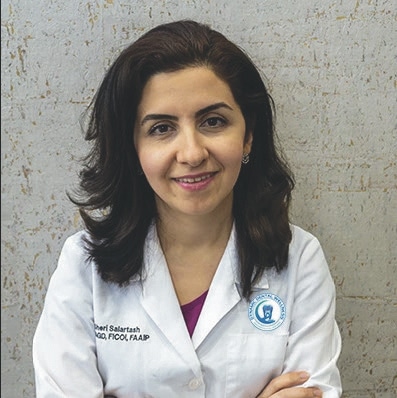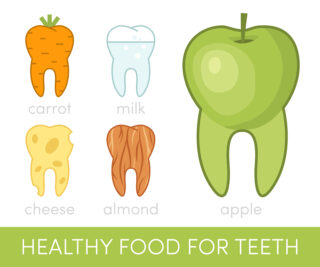
Dynamic Dental Wellness
20755 Williamsport Place
Suite #300
Ashburn, VA 20147

More Dental Health Articles
Oral Issues and Nutritional Deficiency

Nutrients, minerals and vitamins play an important role in our overall health, therefore from a holistic dentistry view they are vital for oral health as well. However, their effect on oral health goes beyond the general benefits they have for a healthy lifestyle. Lack of certain nutrients, vitamins and minerals can cause adverse dental issues such as dental decay, gum disease and narrow jaws.
Vitamin A deficiency might result in brittleness, salivary gland degeneration, and increased risk of cavities. Vitamin A plays many roles:
- Helps the eyes adjust to light changes
- Imperative in bone growth and tooth development
- Assists with reproduction, cell division and gene expression
- Works to control the immune system
- Keeps the skin, eyes, and mucous membranes of the mouth, nose, throat and lungs moist
- Vital antioxidant that may play a role in the deterrence of certain cancers
Food Sources for Vitamin A:
- The form that is easiest for your body to use is from animal foods-butter, milk, egg yolks, goat cheese, fish and liver. Two predominantly rich sources are fermented cod liver oil and butter.
- Some plants contain the antioxidant beta-carotene, which the body can transform to vitamin A.
- Beta-carotene comes from orange or dark green fruits and vegetables.
Vitamin B deficiency can cause stomatitis (inflammation and pain of the mouth) or glossitis (inflammation and pain of the tongue) or oral ulcers. Get all eight B vitamins from a variety of foods:
- Whole grains
- Meat
- Eggs and dairy products
- Legumes
- Seeds and nuts
- Dark, leafy vegetables
- Fruits
Vitamin C deficiency can lead to gum inflammation, poor wound healing, bleeding gums, and loosening of teeth. Fruits and vegetables are the best sources of this vitamin:
- Citrus
- Bell peppers
- Strawberries
- Tomatoes
- Cruciferous vegetables
- White potatoes
Vitamin D deficiency can cause underdevelopment of the outer and inner layer of the tooth or tooth loss in extreme cases. Also vitamin D deficiency can lead to bone loss and periodontal disease.
Vitamin D3 helps the body use calcium and phosphorous, and it increases the amount of calcium absorbed from the small intestine, helping to form and maintain bones and teeth. This also prevents tooth decay. It also plays a role in immunity and controlling cell growth. Children especially need adequate amounts of vitamin D to develop strong bones and healthy teeth.
Food Sources for Vitamin D3:
- The main source is the sun.
- Vitamin D is also found in oily fish, as well as in cod liver oil, butter, eggs, and liver.
Calcium and Phosphorus deficiency during pregnancy may result in bone deformities, incomplete tooth calcification, tooth malformation, increased risk of tooth decay in the developmental stage. Inadequate intake through childhood and into adolescence will lead to decreased bone density and mass. If unaddressed, it will cause osteoporosis – a disorder where the bone becomes porous, brittle and subject to fracture. The other complications for calcium and phosphorus deficiency include tooth mobility, premature tooth loss, and reduced strength of jaw bone. Best food sources for phosphorus and calcium:
- Phosphorus is in almost all animal and vegetable foods and is often found in foods that contain calcium. Milk and dairy products, fish bones, and dark-green, leafy vegetables are the best sources of calcium. Magnesium, like phosphorus, is abundant in animal and plant cells.
Other Articles You May Find of Interest...
- Let’s Smile Dental’s 7&Up Club
- Strengthening Smiles: Understanding the Importance of Splinting Periodontally Involved Teeth
- Understanding Soft Tissue Grafting: A Key To Periodontal Health
- New Solutions for Dentures and Dental Implants
- Benefits Of Immediate Dental Implants
- Preventing Tooth Injuries During Your Child’s Active Summer
- How New Tech In the Dental Office Benefits You

















